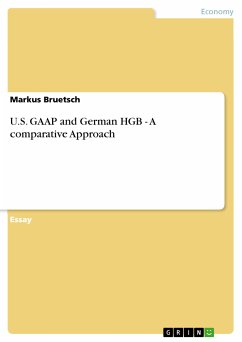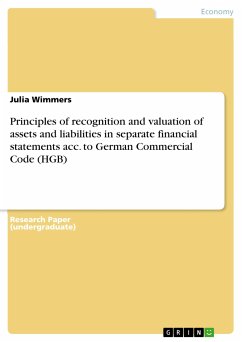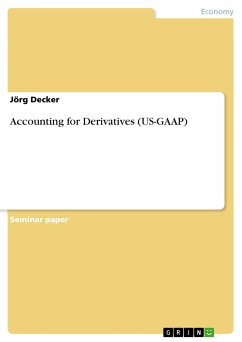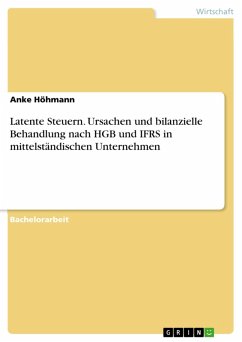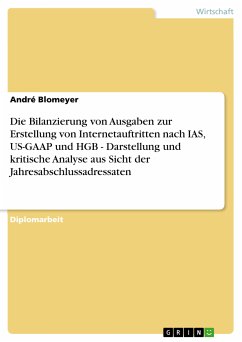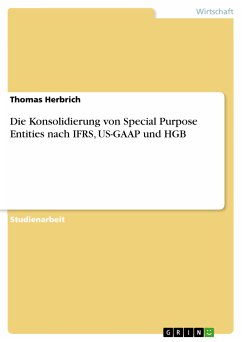Essay from the year 2003 in the subject Business economics - Accounting and Taxes, grade: 1,5 (A), Oxford Brookes University (Business School), course: International Financial Accounting, language: English, abstract: This essay will compare and contrast the accounting systems of Germany and the United States of Amerika. First the single systems, their core concepts and purposes will be introduced. Second, the two core concepts of conservatism and true and vair value will be presented. Both systems will be examined in order to show how they incorporate these concepts and how this might affect the calculation of profits. Where data is available, selected examples from published company accounts will be shown. Finally some short comments on how the systems come closer to each other since several german companies aim for crosslistings in both countries. A conclusion will summarize the main facts. Different accounting systems might come to different results in their calculations of profits. This can be shown by drawing an example from the Siemens AG’s annual report 2000. In their report based on German GAAP (General Accepted Accounting Principles) the net income in 2000 was 7,901 million €. The same calculation based on U.S. GAAP amounts in the F-20 report for the Securities and Exchange Commission (SEC) to 8,860 million € (see figure 1). Now the Question is how come this difference of nearly 14%? Is one system more exact? [...] As we have seen in assignment 1, accounting is not a science. It has been developed to serve a purpose. Accounting systems are influenced by several social and economic factors (Radebaugh and Gray, 1997). [...] It seems that German GAAP and US GAAP have different objectives. Therefore we will analyze the two systems in their national contexts now.

